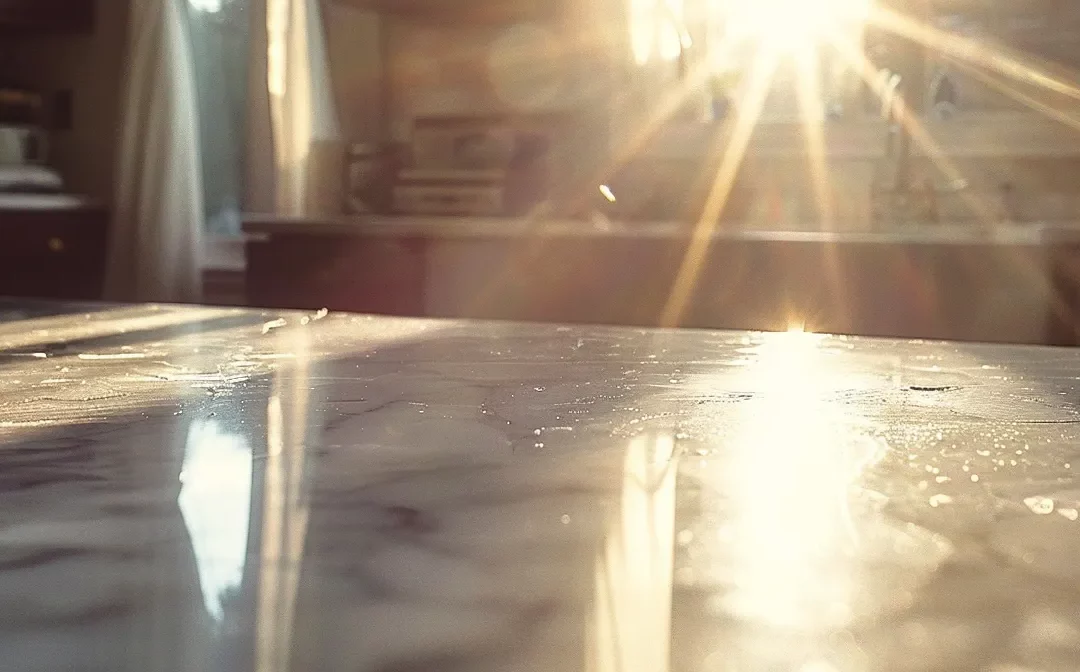Table Of Contents:
- Key Takeaways
- Understanding the Unique Needs of Resurfaced Countertops
- Establishing Effective Daily Cleaning Habits
- Protecting Countertops From Heat and Physical Damage
- Choosing Suitable Cleaning Products and Methods
- Scheduling Regular Inspections and Maintenance
- Addressing Stains and Spills Promptly
- Conclusion
Your newly resurfaced countertops deserve attention to maintain their durability. Did you know that improper care can lead to issues like water damage and poor adhesion? In this article, you will learn essential maintenance tips, including effective daily cleaning habits, how to protect your countertops from heat and physical damage, and the importance of promptly addressing stains and spills. By following these tips, you can ensure your surfaces remain beautiful and functional, saving you time and future repair costs. Let’s dive in to help you keep your resurfaced countertops in top condition.
Key Takeaways
- understanding resurfaced materials is crucial for their maintenance and durability
- implement regular cleaning practices to prevent grime and bacteria buildup
- use gentle, non-abrasive cleaners to protect your countertops from damage
- address spills promptly to prevent stains from setting in
- consider professional care for significant wear or visible damage on surfaces
Understanding the Unique Needs of Resurfaced Countertops
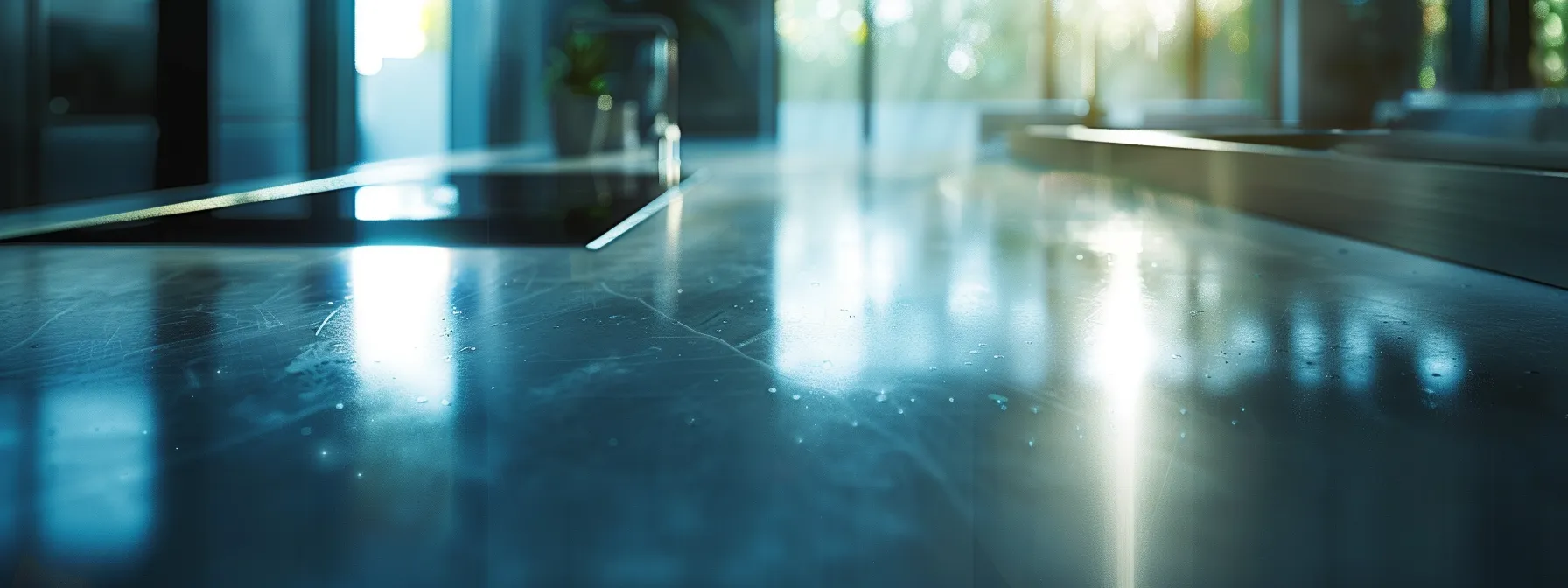
Understanding the unique needs of resurfaced countertops is crucial for maintaining their durability and longevity. First, recognizing different resurfacing materials, such as concrete or specialized coatings, can significantly affect usability and aesthetics. Then, implementing proper maintenance practices, like regular cleaning with soap and using a cutting board, ensures your surfaces remain in great shape.
Recognizing Different Resurfacing Materials
When choosing resurfacing materials for your countertops, it’s important to recognize the options available, such as marble, tile, and specialized coatings. Marble offers a timeless aesthetic appeal but requires careful maintenance to avoid scratches and stains. On the other hand, tile surfaces can provide a durable solution, allowing for various designs while being easier to clean and maintain.
Another popular material for resurfacing is resin-based coatings, which are petroleum-derived and designed to withstand wear and tear. These coatings provide a glossy finish that enhances the countertop‘s appearance and can be applied over existing surfaces. Understanding the properties of different materials helps you choose the right option that meets your style preferences and durability needs.
When you prioritize the appropriate resurfacing material, you set the stage for long-lasting use. Each material has unique needs in terms of cleaning and maintenance. By familiarizing yourself with these differences, you can implement the best practices for care, ensuring your countertops remain in excellent condition for years to come.
Benefits of Proper Maintenance
Proper maintenance of your newly resurfaced countertops is vital to ensuring their longevity and functionality. When you regularly clean these surfaces, you prevent the buildup of grime and bacteria that can degrade various materials over time. For instance, using moderate pressure when cleaning a butcher block surface helps maintain its integrity, keeping it in excellent condition for food preparation and presentation.
Another benefit of maintenance is the ability to protect your countertops from damage caused by daily use. For example, applying a suitable primer can enhance the bond between the resurfaced surface and any additional coatings you may choose to apply. Additionally, sealing grout lines properly helps guard against water damage and stains, extending the lifespan of tiled surfaces substantially.
Moreover, professional insights provided by experts in countertop maintenance can guide you in selecting the right products and techniques for preserving specific materials, such as metal and resin-based surfaces. Understanding the unique care needs associated with each material allows you to make informed decisions, ensuring you maximize the durability of your countertops while maintaining their aesthetic appeal.
Caring for resurfaced countertops requires more than just admiration; it needs daily attention. Learn how to establish effective cleaning habits that protect your investment and keep your surfaces looking fresh.
Establishing Effective Daily Cleaning Habits
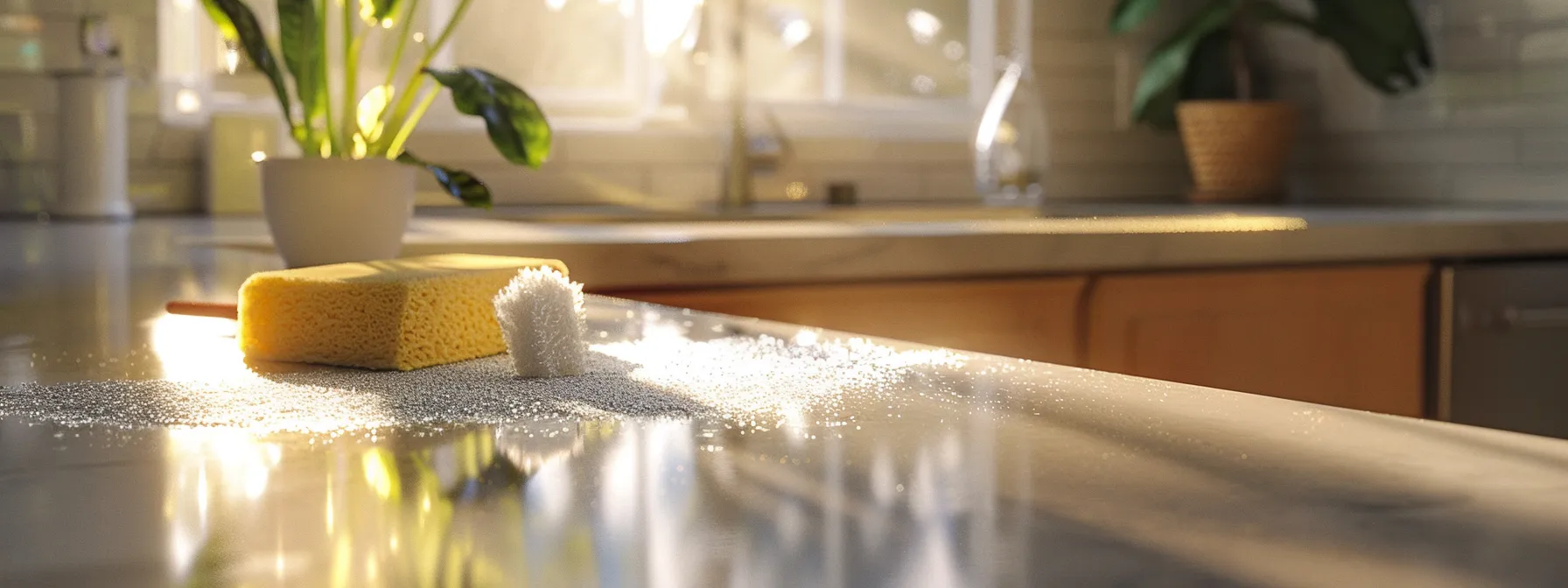
Establishing effective daily cleaning habits is essential for maintaining the durability of your newly resurfaced countertops. Selecting the right cleaning tools, such as a paintbrush and sponge, helps protect the surface. Additionally, using safe cleaning solutions, including mineral-based options, ensures proper care while enhancing waterproofing and sealant effectiveness. These steps will keep your countertops looking great for years.
Selecting the Right Cleaning Tools
Selecting the right cleaning tools is essential for caring for your newly resurfaced countertops. A soft brush or sponge is a safe choice as it helps to avoid scratching the surface while effectively removing dirt. This approach is particularly useful in both kitchen and bathroom settings, ensuring that you maintain a clean and hygienic environment in all rooms of your home.
Using mineral oil can enhance the shine and longevity of your countertops while providing additional protection from stains and wear. Regular application of mineral oil, combined with gentle cleaning tools, ensures that your surfaces retain their aesthetic appeal and functionality. You can apply mineral oil after cleaning to maintain a protective barrier, especially in high-traffic areas like the kitchen and bathroom.
Consider implementing a daily cleaning routine that includes these tools as part of your maintenance strategy. Regularly using the right brush or sponge will help remove spills and debris before they have a chance to damage your countertops. This proactive approach not only keeps your surfaces looking new but also extends the lifespan of your newly resurfaced countertops, making your home a more inviting space.
Safe Cleaning Solutions for Resurfaced Surfaces
When it comes to cleaning resurfaced surfaces, using safe cleaning solutions is vital to maintaining their looks and longevity. For surfaces like particle board and Formica, a gentle mixture of mild soap and water can effectively remove stains without causing damage. This straightforward approach helps you avoid harsh chemicals that could compromise the integrity of your countertops.
If you have epoxy or soapstone surfaces, consider using a specialized cleaner designed for these materials. These cleaners often contain ingredients that safely lift stains while enhancing the protective qualities of the surface. Regularly applying these cleaners not only keeps your countertops spotless but also reinforces their durability over time.
It’s important to avoid abrasive cleaning tools that can scratch resurfaced surfaces, leading to potential vulnerabilities. Instead, opt for soft sponges or microfiber cloths to gently wipe away any debris. By incorporating these safe cleaning solutions into your daily routine, you can effectively protect your newly resurfaced countertops and keep them looking impeccable for years to come.
Cleaning keeps your surfaces shining, but you must also protect them. Understanding how to shield your countertops from heat and damage ensures they stay beautiful for years to come.
Protecting Countertops From Heat and Physical Damage
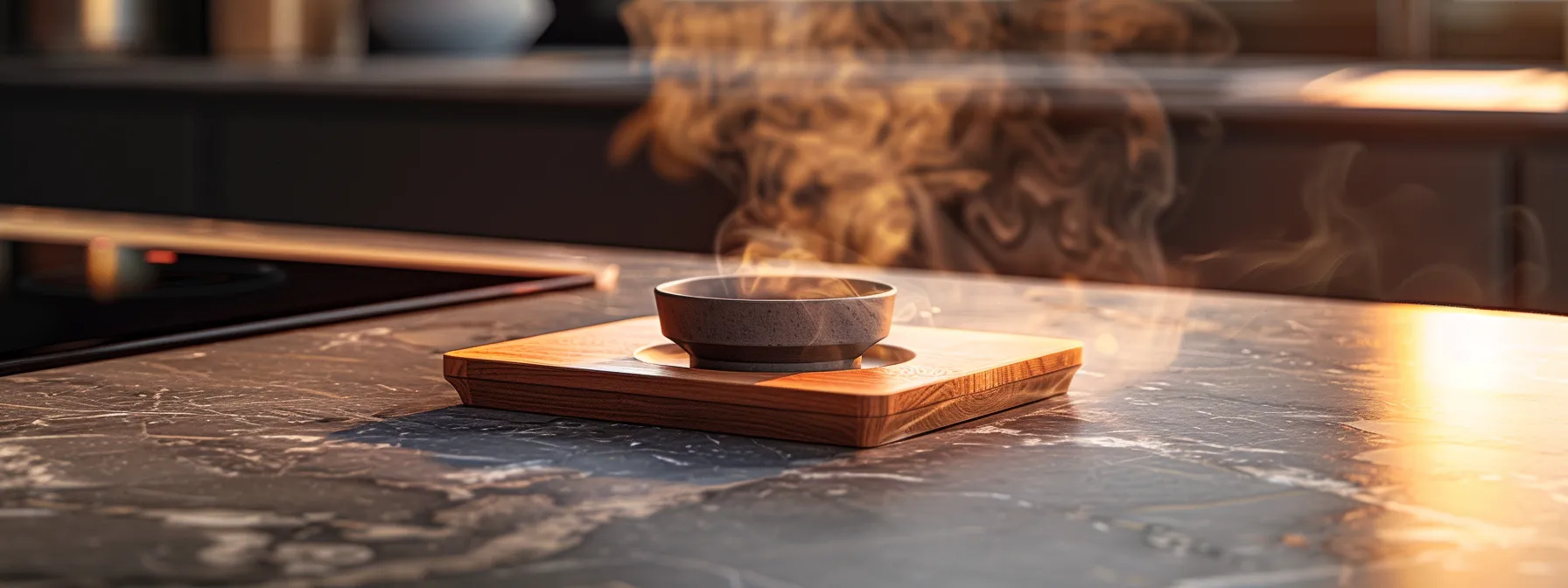
To maximize the durability of your newly resurfaced countertops, it is essential to implement heat protection measures and prevent scratches and dents. Using items like trivets or cutting boards can shield surfaces from hot pots, while careful handling can reduce physical damage. Understanding these practical tips will safeguard your renovation investment and enhance your home improvement efforts.
Implementing Heat Protection Measures
Implementing heat protection measures for your newly resurfaced countertops is essential for preserving their appearance and durability. Items like trivets or heat mats are vital when placing hot pots or pans on the surface. Utilizing these tools can effectively prevent heat damage and maintain the integrity of your countertop material, particularly when dealing with sensitive surfaces.
Another key aspect to consider is the placement of heat-resistant pads, especially near areas like the sink or stove where hot items are frequently handled. These pads are designed to withstand high temperatures and can safeguard the polyurethane finish of your countertops from scorching. When you invest in these protective accessories, you’re reinforcing your countertop‘s longevity and reducing the risk of costly repairs.
In addition, always avoid placing hot items directly on plastic or laminate surfaces. Instead, you should establish a habit of using cutting boards and trivets as a buffer. This practice will not only prevent damage but also preserve the finish of your resurfaced countertops, allowing you to enjoy their beauty for years to come.
- Use trivets and heat mats for hot pots or pans.
- Place heat-resistant pads near sinks and stoves.
- Avoid placing hot items directly on plastic or laminate surfaces.
- Use cutting boards and trivets as buffers.
Preventing Scratches and Dents
To prevent scratches and dents on your newly resurfaced countertops, it’s essential to practice careful handling when using items like cookware and kitchen utensils. For example, utilizing cutting boards and trivets can significantly reduce the risk of damaging surfaces, particularly in high-usage areas like Bathrooms and Kitchens. This proactive approach not only protects the aesthetic appeal of materials such as granite but also extends their longevity.
When moving items across your countertops, take extra care by lifting rather than sliding. Sliding can cause unnecessary friction that may result in scratches, especially on softer surfaces. Incorporating a gentle touch when interacting with your cabinetry and countertops will help preserve their finish and maintain the beauty of your investment for years to come.
Lastly, consider implementing a regular maintenance routine that includes inspections for any potential signs of wear. By addressing minor scratches or dents quickly, you can prevent further damage and keep your countertops in pristine condition. Make sure to visit the Fimagine Home Page for resources on maintaining accessibility and durability for your countertops to ensure sustained beauty in your home.
Damage can come from many angles, but how you clean your surfaces plays a big role in their longevity. Let’s look at the right products and methods that will keep your countertops shining for years to come.
Choosing Suitable Cleaning Products and Methods

Choosing suitable cleaning products and methods is crucial for maintaining the beauty and durability of your newly resurfaced countertops. You’ll learn which cleaning agents are best for materials like quartz, ceramic, and porcelain, as well as which ones to avoid to protect your kitchen cabinet surfaces. Additionally, exploring eco-friendly cleaning options can help you care for your Caesarstone countertops without compromising the environment.
Cleaning Agents to Use and Avoid
When selecting cleaning agents for your newly resurfaced countertops, avoid any products that are overly abrasive. Solid surface materials, while durable, can be susceptible to scratches and damage from harsh chemicals. Instead, prioritize gentle cleaners specifically designed for countertop surfaces, ensuring your kitchen remodel retains its fresh look despite everyday wear and tear.
Attention to detail is important when cleaning your countertops. Using pH-balanced, non-abrasive cleaners maintains the surface without causing harm. Natural cleaners, such as a mild soap solution, are ideal for daily use and can effectively remove dirt and stains while prolonging the life of your surfaces. Be sure to read labels carefully to select the right cleaning products.
It’s also wise to steer clear of acidic or chlorine-based cleaners, as these can degrade certain materials over time. Regular use of improper cleaners can lead to dull surfaces and shorten the lifespan of your investment. Implementing the right cleaning practices not only enhances the durability of your resurfaced countertops but ensures they remain an attractive feature in your kitchen for years to come:
- Use gentle, non-abrasive cleaners.
- Avoid acidic or chlorine-based products.
- Opt for pH-balanced solutions for daily cleaning.
- Read product labels to ensure compatibility.
Eco-Friendly Cleaning Options
When looking to maintain the beauty and durability of your newly resurfaced countertops, consider eco-friendly cleaning options. For materials such as Corian and resin, using natural, non-toxic cleaners can effectively remove stains without compromising the integrity of the surface. These environmentally safe solutions help you achieve a spotless kitchen while minimizing your impact on the environment.
For stainless steel surfaces, a simple mixture of vinegar and water can work wonders. This combination not only cleans but also provides a streak-free shine. By opting for this eco-friendly method, you ensure your stainless steel countertops remain durable and attractive without exposing them to harsh chemicals.
Incorporating eco-friendly cleaning options into your routine helps you protect your investment in kitchen remodeling. Consider using gentle, pH-balanced cleaners designed for specific surfaces, such as Corian and resin. Keeping these points in mind can maintain the longevity and cleanliness of your countertops and ultimately prolong their lifespan:
- Use natural, non-toxic cleaners on Corian and resin.
- Mix vinegar and water for effective stainless steel cleaning.
- Choose pH-balanced options for daily maintenance.
Once you’ve selected the right cleaning products, it’s time to think about the long-term care of your surfaces. Scheduling regular inspections and maintenance will ensure your resurfaced areas stay in great shape for years to come.
Scheduling Regular Inspections and Maintenance
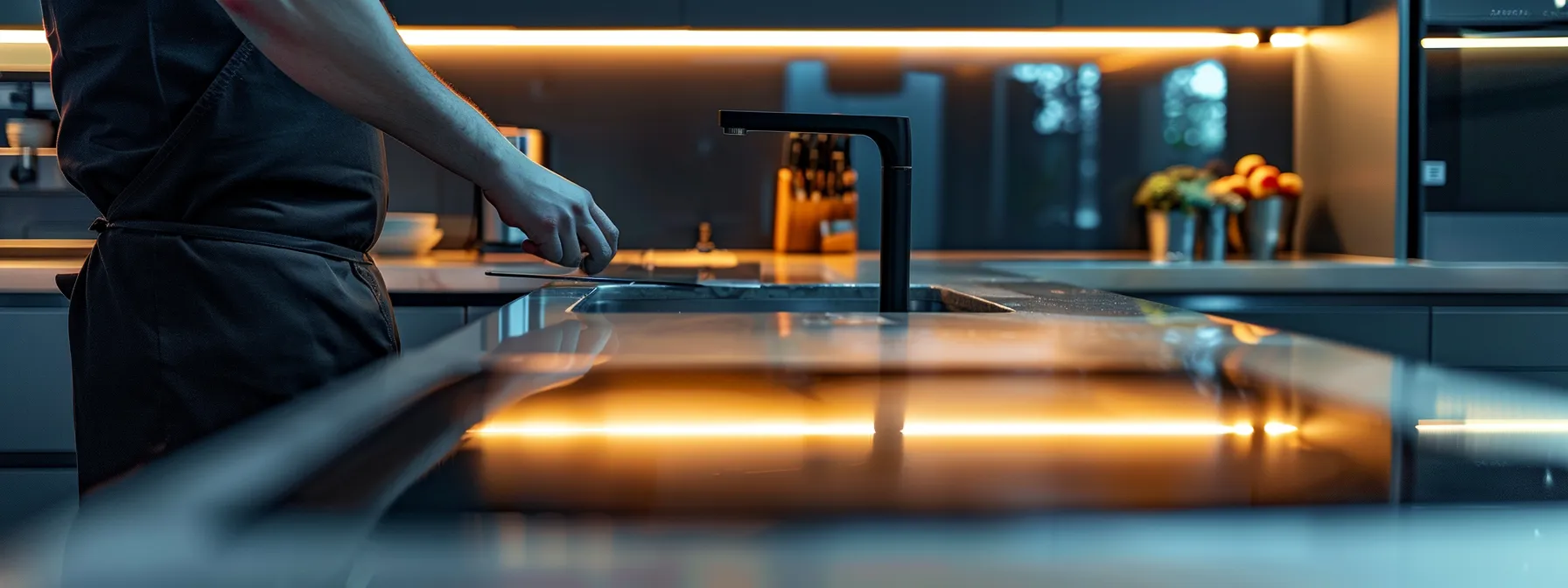
Regular inspections and maintenance of your newly resurfaced countertops are vital for extending their lifespan. Identifying early signs of wear can help you address minor issues before they escalate, ensuring your warranty remains intact. Knowing when to seek professional care, especially for engineered stone or steel surfaces, is equally important for maintaining your interior design aesthetic and functionality.
Identifying Early Signs of Wear and Tear
Identifying early signs of wear and tear on your resurfaced countertops can save you from costly repairs down the line. Look for changes in the surface’s texture, such as rough patches or dull spots, which may indicate that it requires immediate attention. Regular inspections will help you detect these issues before they escalate, ensuring the longevity of materials like plywood or solid surfaces.
You should also be mindful of any visible cracks or chips that can develop over time. These imperfections not only compromise the integrity of the countertop but can also lead to further damage if left unaddressed. Keeping an eye out for these signs during your routine cleaning or maintenance sessions will help you maintain the beauty and functionality of your countertops.
Another factor to consider is the presence of stains or discoloration that may occur with heavy use. If you notice persistent stains that don’t respond to cleaning, it may be time to reassess your cleaning methods or materials. By staying proactive about these issues, you ensure your countertops remain safe, functional, and aesthetically pleasing:
When to Seek Professional Care
Recognizing when to seek professional care for your resurfaced countertops is essential for preserving their longevity. If you notice persistent stains that do not respond to your cleaning efforts or if the surface begins to feel rough, it may indicate deeper issues that require professional attention. Proactive steps like this not only maintain aesthetic appeal but also help safeguard your investment.
Another situation where seeking expert help becomes necessary is when you observe any visible cracks or chips. These imperfections can lead to further damage if left unaddressed, compromising the durability of the materials. Consulting a professional will ensure that these issues are resolved properly, preventing any additional repairs down the line.
Lastly, if routine inspections reveal significant wear, such as dullness or discoloration, don’t hesitate to reach out to a professional. These signs may indicate that your countertops need special treatments or refinishing to restore their original beauty. Understanding when to seek professional care is a vital part of maintaining your countertops, ensuring they remain functional and visually appealing for years to come.
Regular inspections catch small problems before they grow. When spills happen, quick action keeps your surfaces looking fresh and new.
Addressing Stains and Spills Promptly
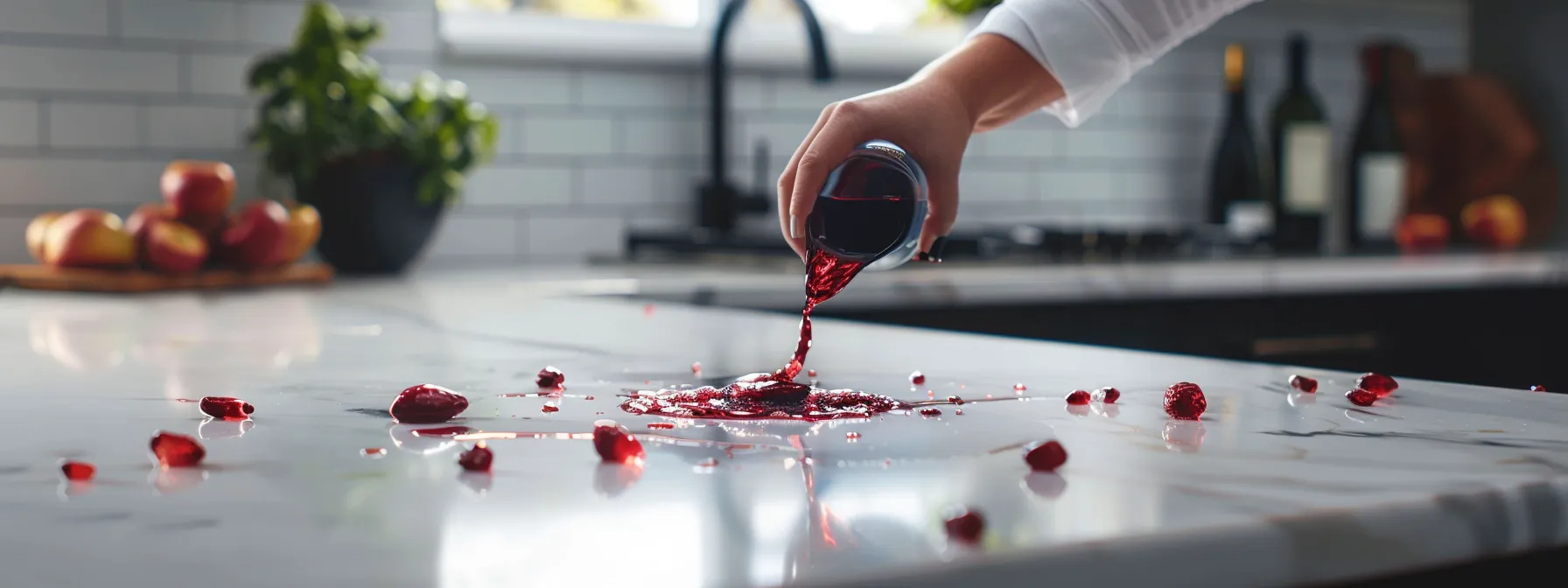
Addressing stains and spills promptly is key to maintaining the durability of your newly resurfaced countertops. You will learn effective quick response techniques for common spills, ensuring that you can tackle messes before they set in. Additionally, exploring preventive strategies will help you minimize staining, keeping your surfaces pristine and enhancing their longevity.
Quick Response Techniques for Common Spills
When a spill occurs on your newly resurfaced countertops, acting quickly is essential. For spills like coffee or wine, blotting the area with a soft cloth should be your immediate response. Avoid rubbing, as this can push the stain deeper into the surface, increasing the difficulty of removal.
If the spill involves sticky substances, don’t hesitate to use warm, soapy water to gently clean the area. A mix of mild dish soap with warm water is effective at breaking down tough residues without harming the countertop finish. Wipe the surface with a damp cloth and follow up with a dry towel to prevent moisture damage.
Certain spills, like oil or grease, require a slightly different approach. After blotting up excess liquid, sprinkle a small amount of baking soda on the affected area to absorb residual grease. This method not only cleans the surface but also helps prevent stains from setting in, ensuring your countertops maintain their pristine look and functionality.
Preventive Strategies to Minimize Staining
To minimize staining on your newly resurfaced countertops, consider using coasters and mats under beverages and food items. This simple step acts as a barrier, preventing spills from coming into direct contact with the surface. By incorporating these protective measures, you help safeguard against potential stains from items that could cause discoloration.
Another effective preventive strategy is sealing porous surfaces or applying protective coatings. By applying a high-quality sealer, you create a barrier that makes it more difficult for stains to penetrate the countertop. Regularly check for wear on the sealant and reapply as needed to maintain optimal protection.
Finally, establishing a routine for cleaning up spills immediately can drastically reduce the chance of permanent stains. Wiping up liquids as soon as they occur not only keeps your countertops looking pristine but also reinforces the habit of caring for your surfaces properly. This proactive approach will ultimately ensure your countertops retain their beauty and functionality for years to come.
Conclusion
Maximizing the durability of your newly resurfaced countertops is essential for preserving their beauty and functionality. By understanding the unique needs of different materials and establishing effective cleaning habits, you can significantly extend their lifespan. Implementing practical protective measures against heat and physical damage further safeguards your investment. Regular maintenance and prompt attention to spills will keep your surfaces looking pristine and functional for years to come.
